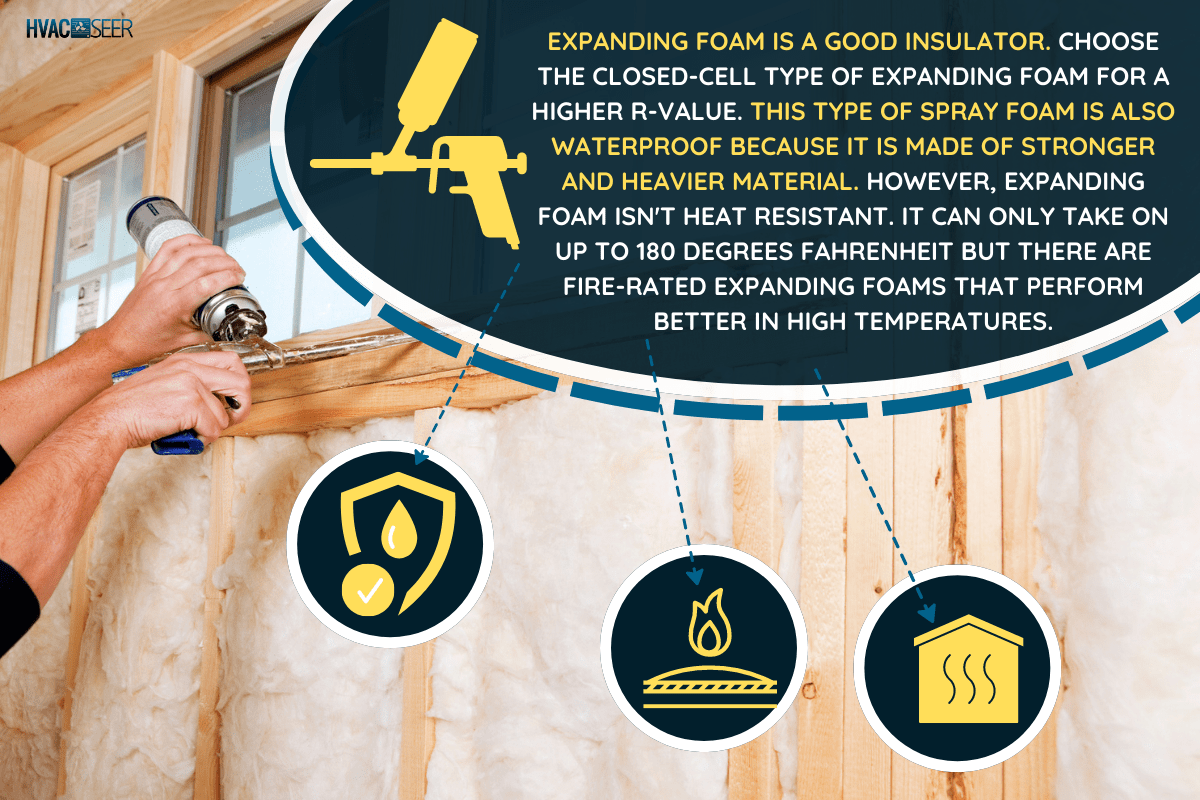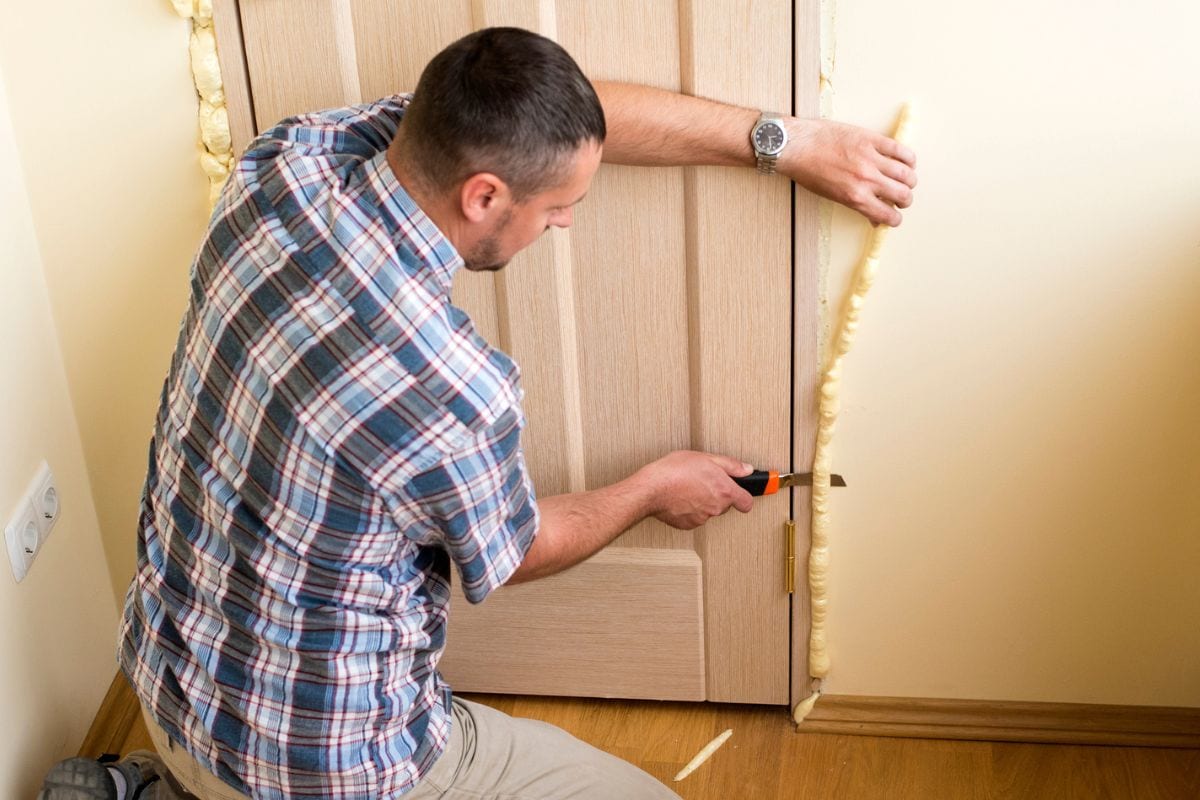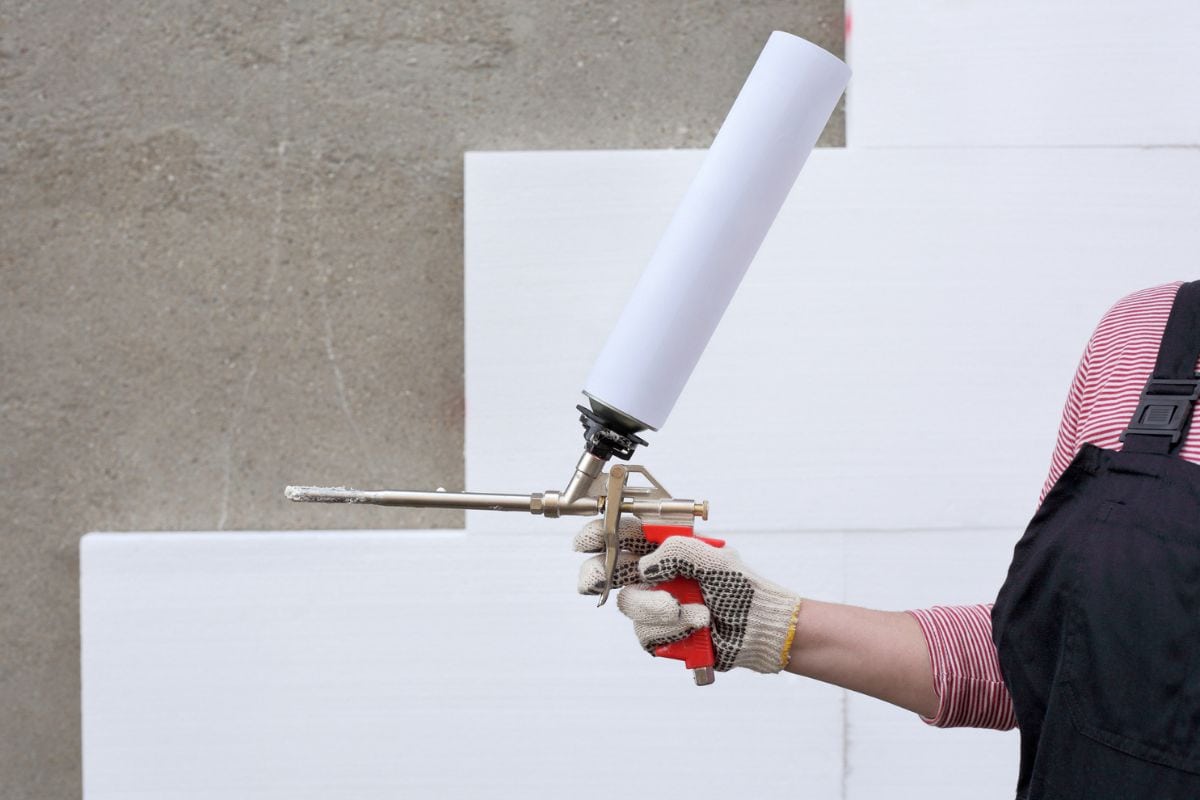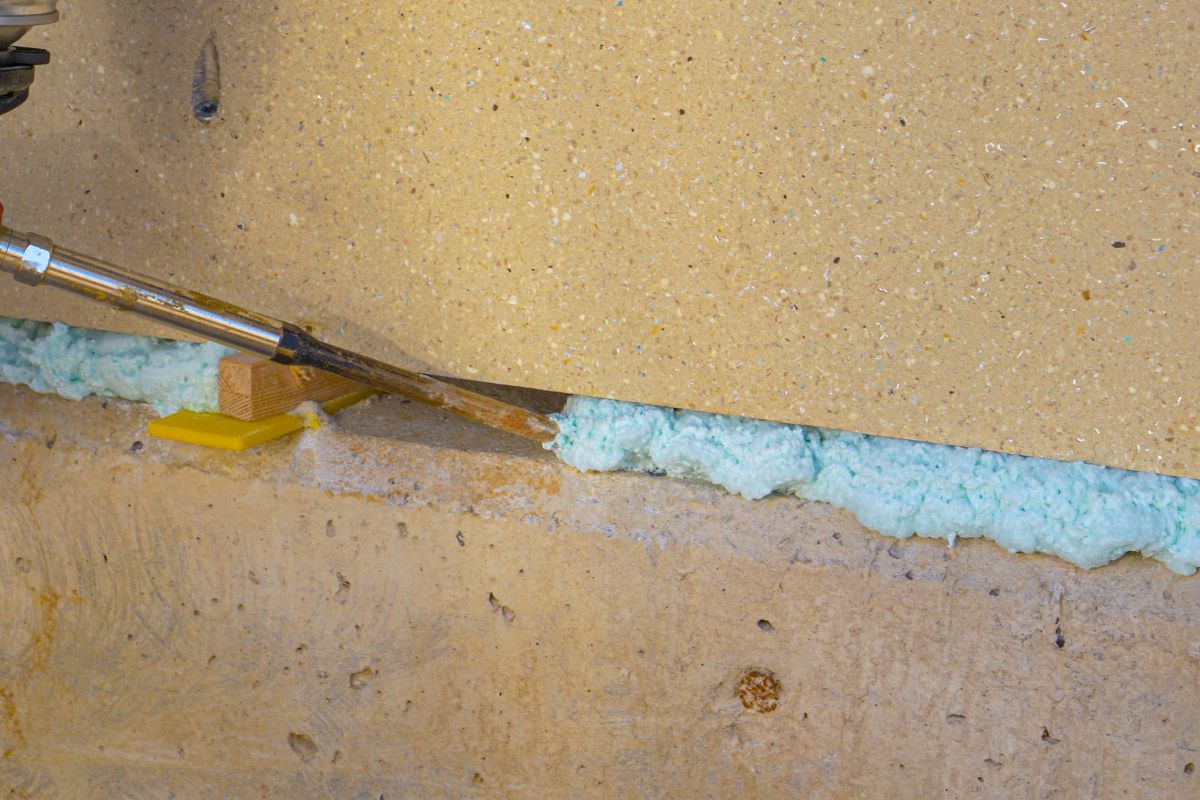Before using a product, you must know its qualities to determine if it's up to the task. If you're thinking about using expanding foam, you've come to the right page. We've already done the research about this product, and we'll tell you more about its properties, mainly if it is waterproof, heat resistant, and a good insulator.
Expanding foam is a good insulator. Choose the closed-cell type of expanding foam for a higher R-value. This type of spray foam is also waterproof because it is made of more robust and heavier material. However, expanding foam isn't heat resistant. It can only take on up to 180 degrees Fahrenheit, but there are fire-rated expanding foams that perform better in high temperatures.
Keep on reading to learn more about the different properties of expanding foam. We'll also tell you how long expanding foam lasts and the disadvantages of using this product. Let's get down to business!

What is Expanding Foam?
Expanding foam is one of the most versatile household products out there. It can be used for home insulation, sealing gaps, preventing the vibrating sound of water pipes and other metals, filling concrete voids, protecting fragile items, and more.

This can-based product results from the reaction when two chemical substances - polyol resin and isocyanate are combined. Together, they produce a polyurethane foam that can expand up to 30 to 60 times its volume after being sprayed on the surface.
Click this link to find this product on Amazon.
Expanding foam is also called spray foam or expansion spray. These terms refer to how this product is applied and how it works. You spray expanding foam on the gaps so that it will fill the void once it develops. With this ability, you can use it for minor to major home fixes.
There are two types of expanding foam, each with very different qualities, so you must be careful in choosing the right product type for the task.
Open-Cell Foam
Of the two foam types, this is the more flexible material. Even after it has dried, it still bends and moves as your house naturally shifts. It goes with the flow, so it won't break or crack when there are movements in your home.
Open-cell foam is also more affordable and can be relied on for your soundproofing needs.
Closed-Cell Foam
This foam type is made of heavier and denser material, so you can't expect it to expand as much. As such, it's best to use it to seal gaps in small spaces.
Check out this closed-cell expanding foam on Amazon.
The closed-cell foam may be more expensive, but its density helps provide you with excellent insulation or R-value.
Is expanding foam a good heat insulator?

Home insulation is one of the primary uses of expanding foam. You can help improve your home insulation by sealing gaps along the doors, windows, walls, floors, and anywhere else that air can pass through.
It makes a good insulator because it has a high R-value per inch -or the ability to resist heat flow. Depending on the spray foam type, its R-value ranges from 3.5 to 7, which is higher than other popular insulating materials. Closed-cell foam offers better insulation than open-cell foam because of its density.
Is spray foam insulation waterproof?
You need a waterproof product when you're going to use it to seal areas often in contact with water and moisture. As long as the water can't penetrate the surface, it won't cause damage to your home.
Not all expanding foams are waterproof, only the closed-cell foam type. Since it is made of more robust and denser material, it is more durable against the elements and other external factors. It can provide a tight seal where water can't penetrate. This will help keep your home dry and prevent water or moisture problems.
Can spray foam hold up to heat?
Sometimes, you must use expanding foam on heated surfaces such as hot water pipes. While you can still use this product on these surfaces, understand that they are flammable and can only endure a maximum temperature of 180 degrees Fahrenheit.
However, you can find fire-rated expanding foam on the market. It has been treated with fire retardant chemicals to reduce the possibility of burning upon exposure to extreme heat. Note that different versions of this product have different levels of fire resistance, usually indicated in the packaging by the number of hours or minutes that they can endure high temperatures.
Find this fire-rated expanding foam on Amazon.
In general, spray foam reduces heat transfer making it a good insulator. Only closed-cell foam can be expected to keep water and moisture out. Regular ones aren't suitable for scorching surfaces, so you'll need the fire-rated kind for this type of application.
How long does expanding foam last?

One of the reasons behind this product's popularity is its durability. It adheres really well to different surfaces. Once it dries, it becomes a permanent part of the structure. It will last for years, some even say a lifetime, as long as it was installed properly and the area is well-maintained.
Before installation, the surfaces should be cleaned thoroughly to remove any dirt or dust interfering with the adhesion. All gaps should be covered to prevent unwanted particles from getting through those tiny spaces.
Take care not to cause punctures on the foam because these will create gaps within the insulation itself. In turn, the expanding foam will continue to expand and contract and, lead to the product's deterioration. The holes will also invite mold and mildew growth, which will cause further damage to the insulation.
But if the spray foam insulation is properly maintained, you can count on it to provide a long-lasting seal on any gap or crack in every nook and cranny of your house. Consequently, you have lifetime protection against water, air, moisture, dirt, dust, and other home pollutants.
What are the disadvantages of spray foam insulation?
As we've said, expanding foam is a popular household product, rightfully so, because it is beneficial in keeping homes dry and helps users make their homes more energy-efficient.
But there are also certain drawbacks when using this product that you should also know as a consumer.
Cost
Expanding foam is quite expensive. You can find other insulating products for a much lower price. You also have to spend on installation costs to ensure quality work.
Installation

It is recommended to hire the services of a professional when using this product for your home insulation. This is especially true if you need to cover large and hard-to-reach areas.
The application of expanding foam takes a long time. It can be messy and affect surrounding areas if you don't have experience doing this job.
Health Risks
Some concerns link expanding foam to cancer and respiratory and gastrointestinal diseases. It can also cause eye and skin irritation if not handled properly.
Superheating
Expanding foam, especially closed-cell foam, traps heat inside your home. This becomes a problem in areas without proper ventilation since the air has to circulate for heat to dissipate. With the heat trapped, your HVAC must work harder to provide a comfortable indoor temperature.
The trapped heat will cause the expansion of the surfaces around it. This will hasten their material's deterioration, and it won't be long before you'll have to repair or replace those portions of your house.
Foul Smell
When the chemicals haven't been mixed properly, users will suffer from a long-term foul smell after the product has been applied and dried.
Aesthetics
Expanding foam, once applied, doesn't exactly enhance the look of your home. There's an uneven look on the surface in terms of color and texture. You must have it sanded, painted over, or stained to hide the foam.
It's good to know the disadvantages of spray foam insulation so you know what to expect from this product. Ultimately, it's best to talk to a professional to get the proper recommendation about the best product for your particular issue at home so you can decide if expanding foam is right for you.
Final Thoughts
Expanding foam offers good insulation, but it isn't heat resistant. For waterproofing and better insulation, choose closed-cell expanding foam. Get yourself a fire-rated expanding foam if you need to apply it to heated areas.
You may also visit the following posts for some related reading:



